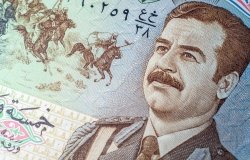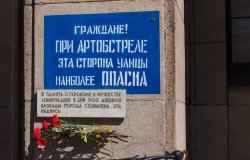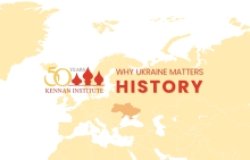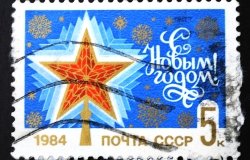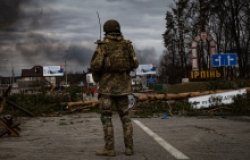HAPP Documents cited in UN Report on Human Rights in North Korea
Documents obtained, translated, and disseminated by the Wilson Center’s North Korea International Documentation Project were quoted from and cited ten times in the United Nations report on human rights in North Korea, released in February 2014.
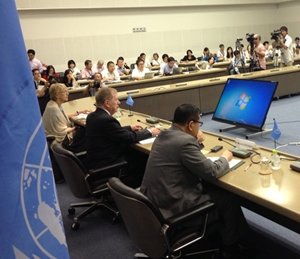
Documents from the archives of North Korea’s former communist allies, obtained, translated, and disseminated by the Wilson Center's North Korea International Documentation Project (NKIDP), were quoted from and cited ten times in the United Nations report on human rights in North Korea, released in February 2014.
The “Report of the Detailed Findings of the Commission of Inquiry on Human Rights in the Democratic People’s Republic of Korea” (A/HRC/25/CRP.1) was written by the United Nations Commission of Inquiry on Human Rights in the Democratic People’s Republic of Korea. The Commission of Inquiry was established in March 2013 with the mandate to investigate the systematic, widespread, and grave violations of human rights in North Korea.
NKIDP materials cited by the Commission of Inquiry include Soviet, Polish, (East) German, and Hungarian reports on the start of the Korean War; North Korea’s treatment of South Korean prisoners of war (POWs) from 1950 through 1953; the institutionalization of North Korea’s Juche ideology and the growth of the Kim Il Sung cult of personality; the expansion of North Korea’s internal security system; and hardships faced by Koreans repatriated to North Korea from Japan in the 1950s and 1960s. These and other documents which bear on North Korea’s human rights record are made freely available through the Wilson Center’s Digital Archive (www.DigitalArchive.org).
The Commission of Inquiry found that systematic, widespread, and gross human rights violations have been, and are being, committed by the Democratic People’s Republic of Korea and that crimes against humanity have been committed by officials of the Democratic People’s Republic of Korea.
The Commission of Inquiry will present a written report with its findings and recommendations to the United Nations Human Rights Council in March 2014.
The full 372-page report by the Commission of Inquiry can be viewed on the website of the Office of the High Commissioner for Human Rights.
Related Programs

North Korea International Documentation Project
The North Korea International Documentation Project serves as an informational clearinghouse on North Korea for the scholarly and policymaking communities, disseminating documents on the DPRK from its former communist allies that provide valuable insight into the actions and nature of the North Korean state. It is part of the Wilson Center's History and Public Policy Program. Read more

Cold War International History Project
The Cold War International History Project supports the full and prompt release of historical materials by governments on all sides of the Cold War. Through an award winning Digital Archive, the Project allows scholars, journalists, students, and the interested public to reassess the Cold War and its many contemporary legacies. It is part of the Wilson Center's History and Public Policy Program. Read more

History and Public Policy Program
The History and Public Policy Program makes public the primary source record of 20th and 21st century international history from repositories around the world, facilitates scholarship based on those records, and uses these materials to provide context for classroom, public, and policy debates on global affairs. Read more

Hyundai Motor-Korea Foundation Center for Korean History and Public Policy
The Center for Korean History and Public Policy was established in 2015 with the generous support of the Hyundai Motor Company and the Korea Foundation to provide a coherent, long-term platform for improving historical understanding of Korea and informing the public policy debate on the Korean peninsula in the United States and beyond. Read more




